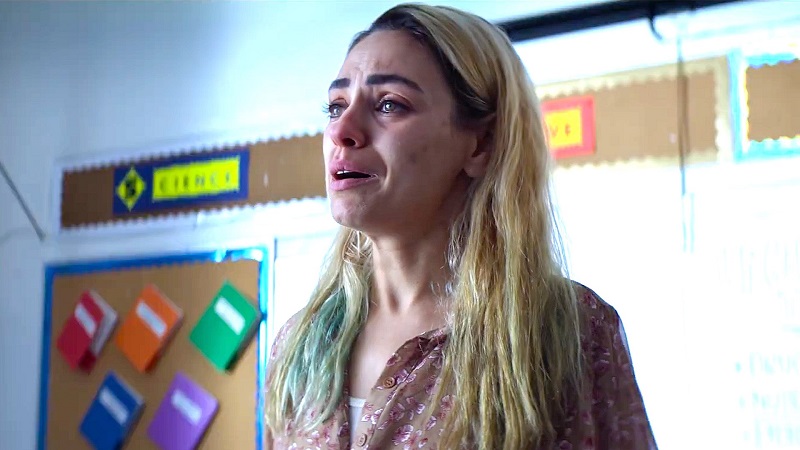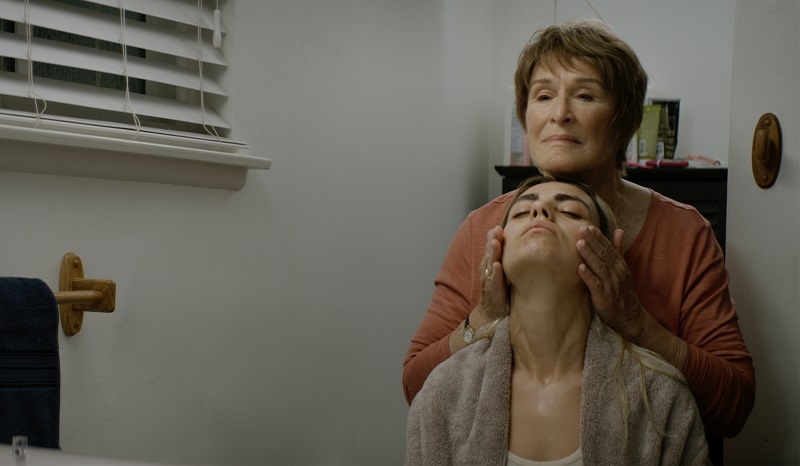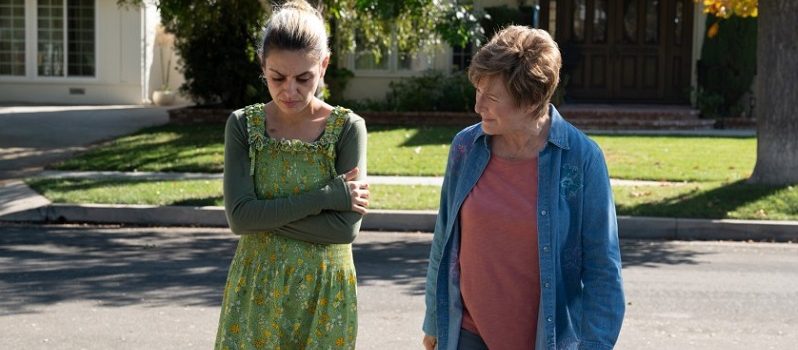On the heels of Glenn Close’s eighth Academy Award nomination for Hillbilly Elegy, the veteran actress gives us another spectacular performance that’s sure to resonate with an even wider audience, and likely earn her a ninth nod from the prestigious Motion Picture Academy.

In Four Good Days, Close portrays Deb, a suburban mother of a 31-year-old opioid addict, Molly (Mila Kunis), who has been to rehab over a dozen times for opioid addiction.
The film opens with a toothless, strung-out Kunis showing up at Deb’s home only to have the door slammed in her face. Here, the audience can get a sense of the tough love that Deb is forced to exude due to the number of times her daughter has let her and Molly’s two children down in the past with her addiction issues.
Once an extremely reluctant Deb allows Molly into her home, she’s forced to hide her wallet under the bed and lives in an almost state of complete fear of what her daughter might steal next to get high if she’s left alone in the house unsupervised for too long. The tension is executed in a way that’s subtle yet salient.

Throughout the film, there’s a constant internal battle for Deb to either practice tough love or compassion. As we all know, the fine line between enabling and compassion can be blurry when dealing with those we love. Yet, the story is told in such an intrinsic way, the audience can see that Deb feels somewhat culpable for Molly’s addiction and blames the doctors for irresponsibly prescribing her to OxyContin, an extremely potent opioid, with multiple refills after an injury when she was a teenager. Deb also feels guilty about some parental mistakes she made during Molly’s childhood, which may have been a trigger for her addiction.
When the dynamic duo goes to meet with yet another rehab facility, a doctor informs them that they have a new injection that can prevent Molly’s cravings. But there’s a kicker, she has to be clean and sober for at least four days for the medicine to work or there could be serious medical consequences. Realizing that this may be their last chance to break Molly’s from her cycle of addiction, the two decide to give it a try.
Four Good Days is a deep portrayal of a mother and daughter’s shared victimhood. And it’s Kunis and Close that truly breathe life into the poignant screenplay. Their dynamic and chemistry are sensationally organic and relatable. They’re both able to successfully express the vulnerabilities of the characters by taking the powerful dialogue to new heights. This is especially true for Kunis, who is truly in rare form.
Director Rodrigo Garcia does a phenomenal job of working the screenplay that is loosely based on an article written for the Washington Post by Eli Saslow detailing a real mother’s battle with her daughter’s opioid addiction. Perhaps that’s why the screenplay feels so raw and authentic because it’s based on a true story. Together, the two created a script that shows a divergent, more layered perspective of addiction.

Four Good Days delves into the underlying emotional causes of addiction and puts an intimate microscope over the opioid epidemic that seems to be eating away at the fabric of American society.
In fact, in 2019, nearly 50,000 Americans died of opioid-involved overdoses, including prescription pain relievers.
This is a story that will resonate with everyone who has ever known or loved an addict. And the performances are sure to leave a lasting impact on audiences all around.
Four Good Days hits theaters April 30th but you can also stream from the comfort of your own home and it’s surely to be just as effective.

